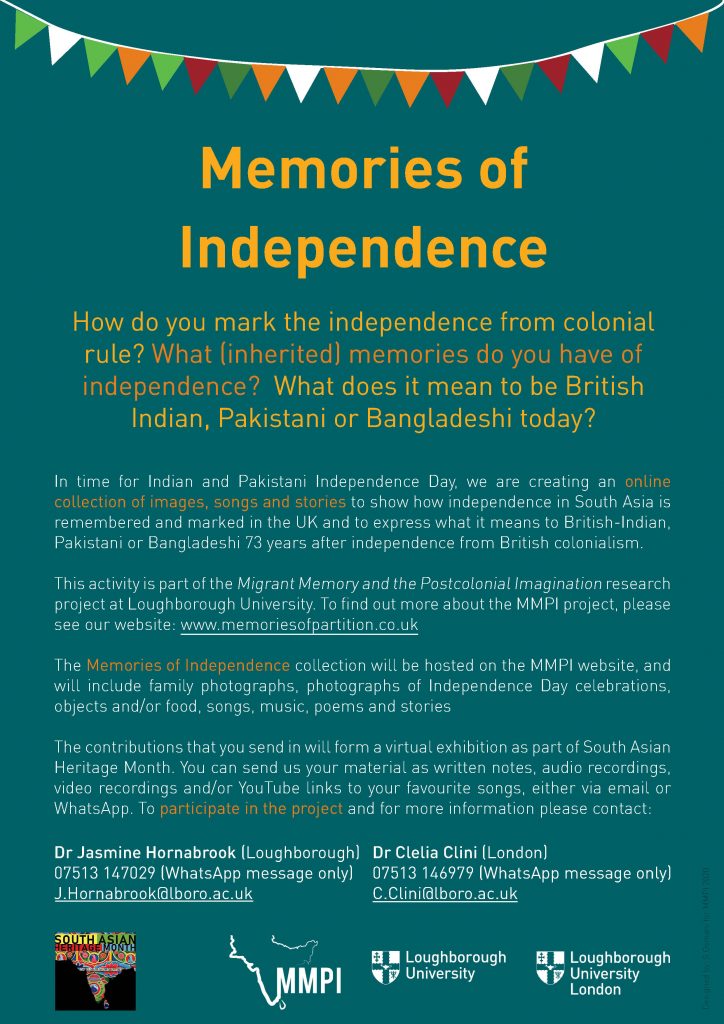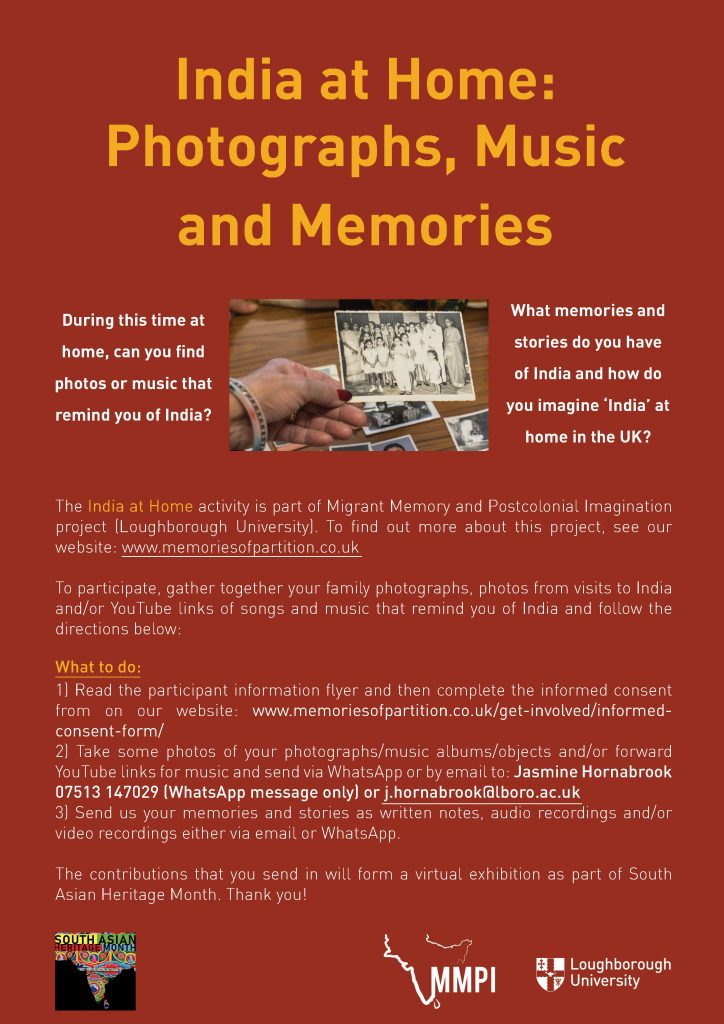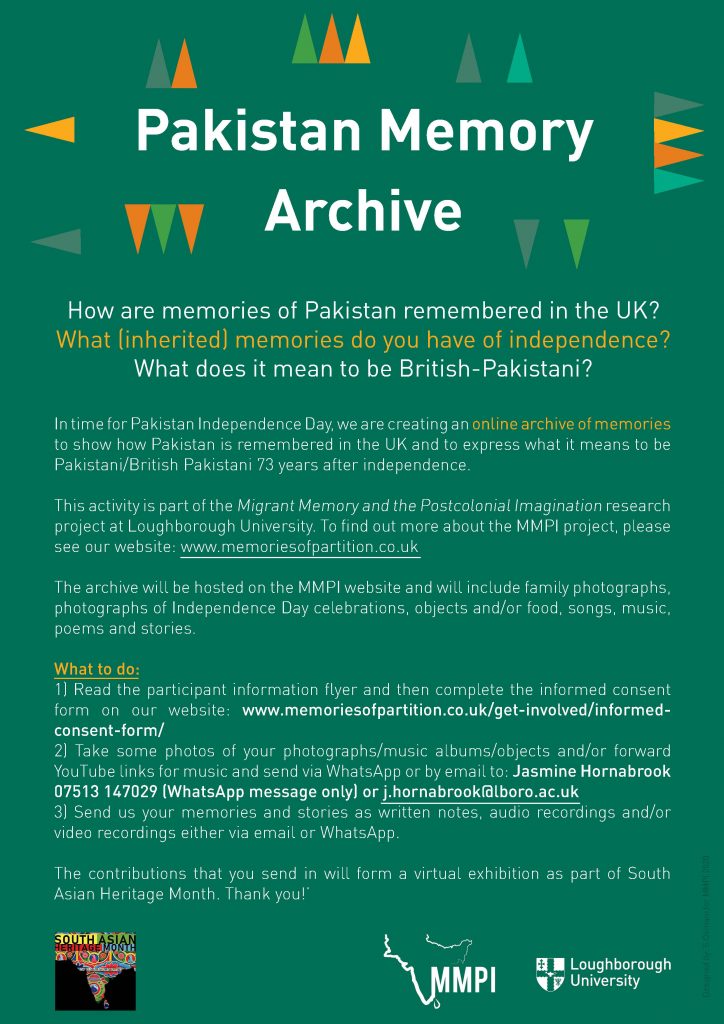
Memory matters, but it is something that we too often take for granted. Remembering is the process by which we make sense of our past experience and stitch it together to make meaningful stories of our lives. We select, omit, and revise these stories and add new experiences to them as we move through our lives. These stories are punctuated by those memories that haunt us – those of extreme pain or pleasure which exceed the everyday and provide reference points from which we can take our bearings for the future. Memory is never just about the past, it is shaped by the pasts that we need to make sense of the present and provide us with a guide for what might lie ahead of us.
Memory is not just an individual thing. We tend to think of memories as our personal possessions, intimately ours and part of our own unique story but remembering is also a process that connects us to others. We shared experiences in the past, we share moments of retelling it, and have common futures. To remember together or to share a past is part of belonging to a group or community.
As with any process of selecting, revising and omitting, there are choices to be made in what and how we remember. Like any good family story, it is told differently by every family member. This means that memory can be argued or fought over, not just within families but between groups, communities and even nations. The versions of the past which are most publicly visible are usually those told by those with the power and resources to make themselves heard.

The Migrant Memory and Postcolonial Imagination project takes this concern with memory and the processes by which some things get left out of public versions of the past as a starting point to ask why South Asian perspectives on the British Empire, processes of decolonisation and the 1947 Partition are largely absent in public history and memory in the UK? Partition was administered by the British and involved one of the largest migrations of people displacing around 15 million, the loss of around one million lives and the creation of two new nations, so it’s absence from British collective memory should concern us all.
Because of this absence we are spending five years working with different communities and groups of people of South Asian heritage in London and the Midlands to find out not just what is remembered, but how these pasts are remembered and transmitted across generations and in processes of migration. This is a memory project rather than a history project, so we want to know how remembering these pasts in different ways shapes people’s understanding of themselves and their community in the present. How are these pasts used? How are they remembered differently by different individuals and groups? What power do these pasts have to challenge and reconfigure dominant stories of our collective past in the UK?

These are difficult questions to answer, not least because memories of the Empire, of Partition and of other conflicts, both local and national can be very painful and are intimately connected to experiences of migration, and of racism experienced in the UK. It can also be the case that, for some families very little was discussed of these processes and transmitted memories can be fragmented and partial. It was because of these challenges that the project aimed to provide spaces for groups of people to come together to talk about shared cultural forms that might connect to those pasts, from food and cooking sessions which provided opportunities to talk about memories evoked by the food we ate in the past, to dance workshops to make time and space for women to talk about how memories are carried by their bodies and can be communicated through dancing.

In order to put these activities together we’ve been working closely with our community partner organisations in Loughborough and London, including Tower Hamlet’s council and the wonderful Ruksana Begum, Charnwood Arts and the late, great Kev Ryan, and our fantastic colleagues at Equality Action, Loughborough.
Over the next few weeks we’ll be blogging about our different community activities in Loughborough (near Leicester) and in Tower Hamlets. We still have over two years to run on the project and have only just scratched the surface so, watch this space!
You can follow MMPI’s journey on Twitter and find more information about their memory curation projects by clicking on each of the project posters below:




Leave a comment